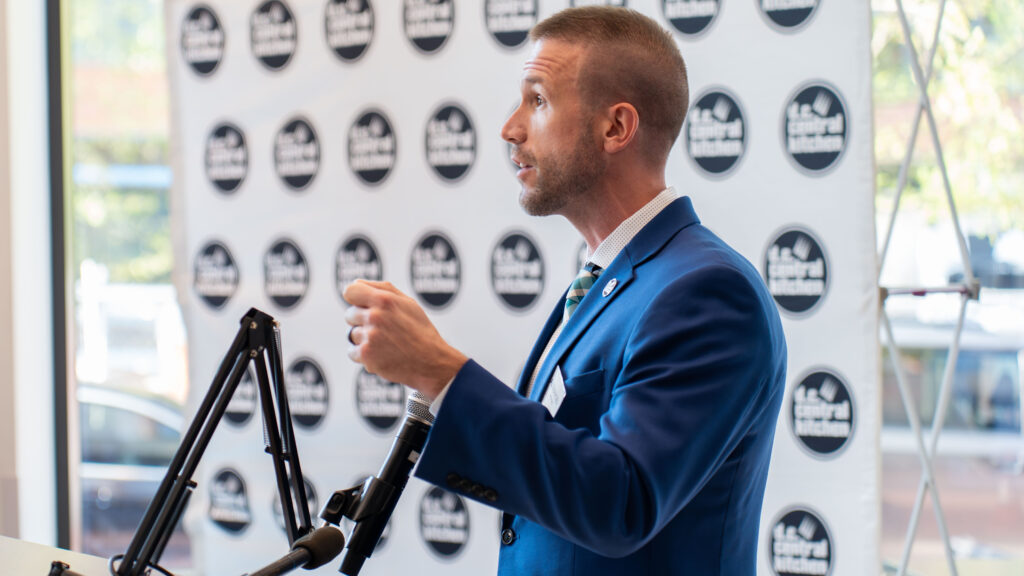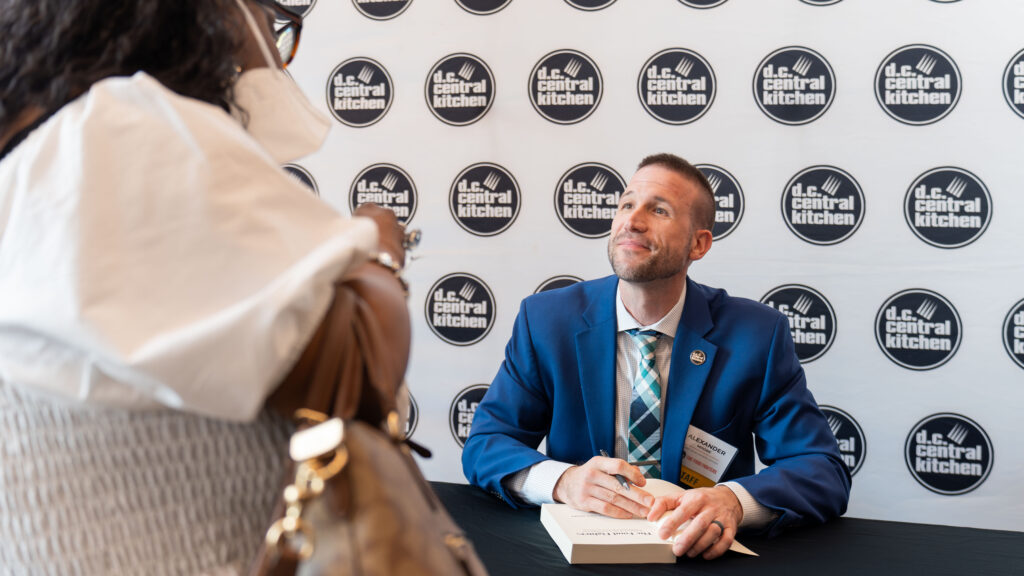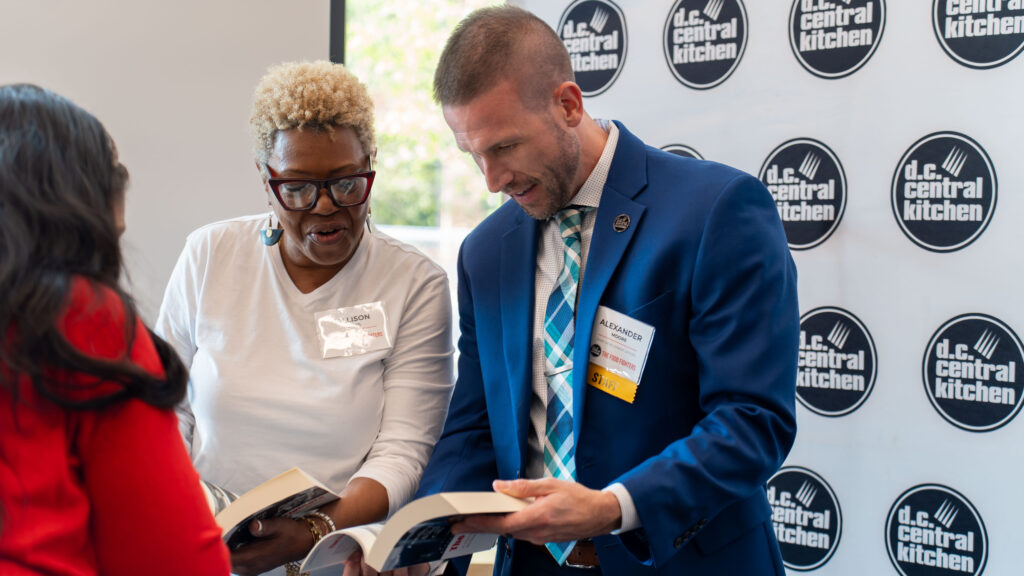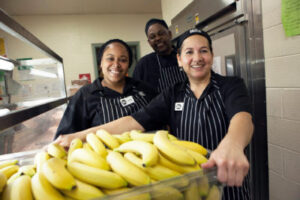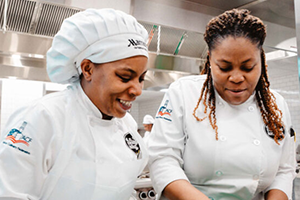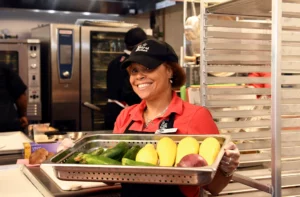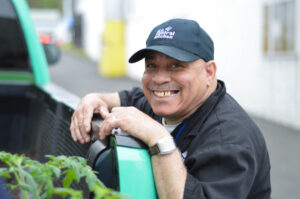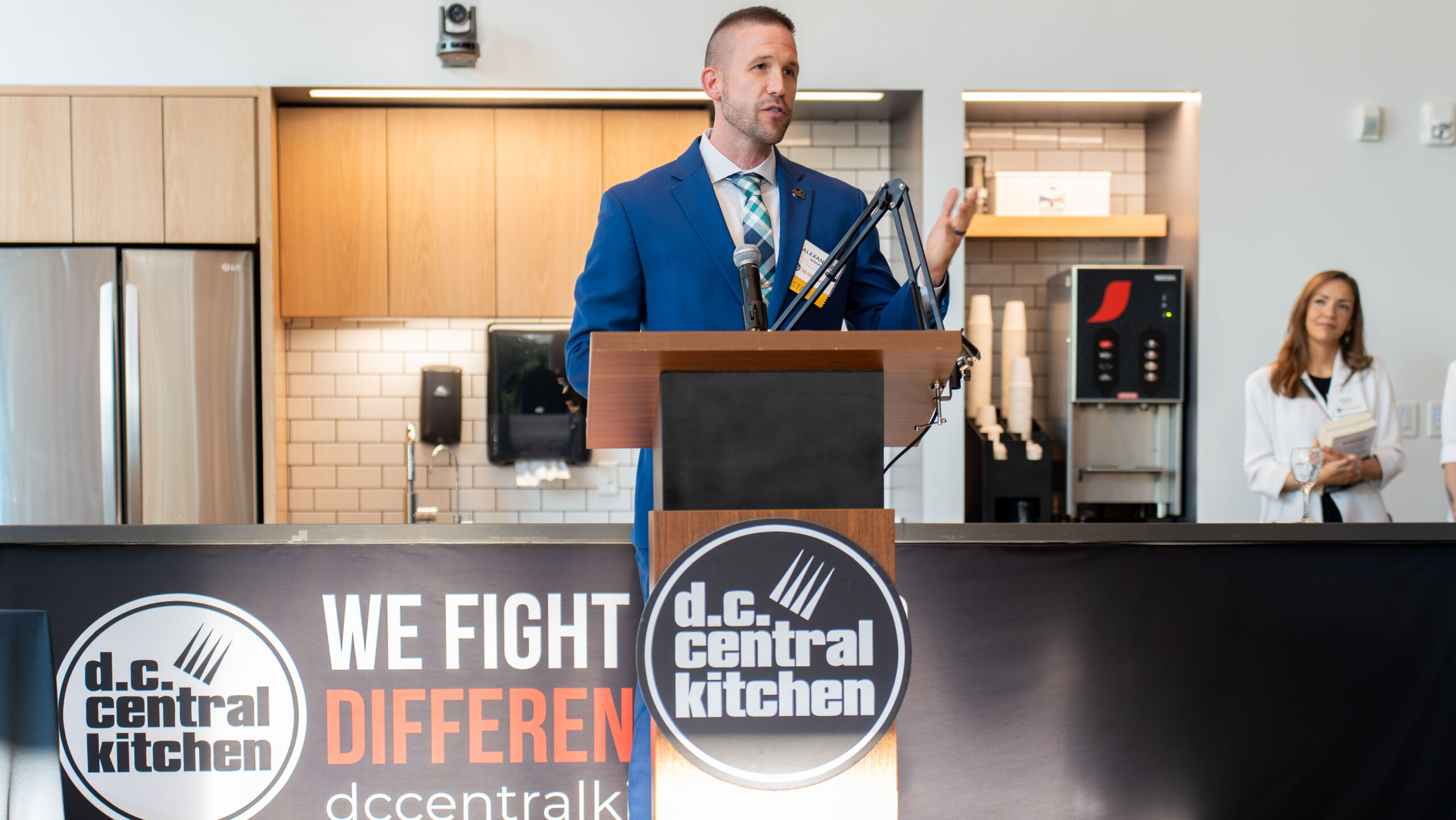Surrounded by DC Central Kitchen Board Members, friends of the Kitchen, current and former Culinary Job Training students, staff, restaurant partners, and C-SPAN on a Tuesday evening in the middle of August, The Food Fighters book launch centered around the newest edition of the retelling the story of the Kitchen. Author Alexander Justice Moore shined a light of why we do what we do. It’s always been about the people.
While dozens of volunteers cut vegetables just down the hall with thousands of meals being assembled in the main production kitchen, Moore began his comments at a podium in the Klein Center’s Hub explaining why both the new edition of book exists and why the Kitchen continues to thrive. “It’s not about the model. It’s not about the manuals, and truth be told, we don’t have many of those. It’s about this mindset of relentless incrementalism of fighting hunger differently. Of making our work more about the liberation of the receiver than the redemption of the giver,” Moore said. “Revealing possibility and potential everywhere and especially in the places where stereotypes and lies tell us those things don’t exist.”
Moore shared an anecdote from the book about a DC Central Kitchen staff member recruited by Marianne Ali, our beloved and long-time director of culinary training who passed away in 2017. In his words, “If Marianne was our North Star, our rock is Mr. John Fenner.”
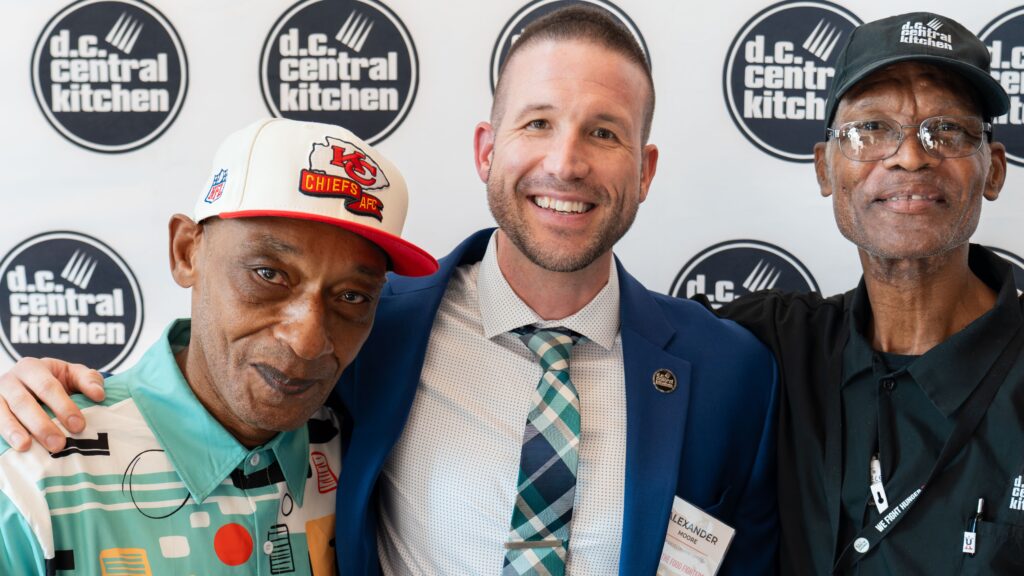
Ali brought Fenner into DCCK at a low point in his life. Drug addiction cost him his marriage and Ali recruited him from a recovery program in 1999 to join the production team. Since coming to DC Central Kitchen more than 20 years ago, he has restored his marriage, maintained his sobriety, and became a homeowner. According to DCCK CEO Mike Curtin, “John Fenner is the happiest man I know.”
Fenner, the long-time DC Central Kitchen dishwasher who refused multiple promotions over his tenure and rarely missed a day of work, has a unique distinction. While the DCCK kitchen, Culinary Job Training classroom, multiple conference rooms, stairway and even bathrooms of The Michael R. Klein Center for Jobs and Justice are named after beloved former employees and generous organizations that helped fuel the construction of the new Kitchen, the John Fenner Dish Room is named after the person that’s still doing the dishes with care and purpose, every single day.
The updated edition of The Food Fighters has 200 new pages of DC Central Kitchen history building on the original version from 2014—when the organization marked its 25th anniversary. This revised and expanded second edition includes countless stories of the men and women, like John Fenner, who have shaped the organization over its first 35 years. It is a valuable resource for nonprofit organizations. But it’s also a reminder that the people are the story.
“The real story of a successful nonprofit is people, individual people for all backgrounds, all experiences choosing to take that grand vision those core values those enduring principles to the little, small choices we all make every day from putting on our pants in the morning coming to work on time saying, ‘Yep, another 650 meals. Yep, we’ll find a way to do that too,’” Moore explained. “It was those purposeful applications of these big ideas that made the kitchen special to me and a story I couldn’t help but write.”
Moore closed his remarks by reiterating what The Food Fighters aims to achieve. “I hope this book is educational. I hope it’s a fitting testament to the devotion and courage of my colleagues. And above all, I hope it can be a source of encouragement at a time when so much feels uncertain. I think if being a food fighter means anything, it’s showing up, especially when times are uncertain. And the food fighters of DC Central Kitchen have shown up for 13,000 consecutive days for this city.”
Interested in reading more about DC Central Kitchen’s journey? Find out more about The Food Fighters and where to find your copy (online or in one of our cafes) at dccentralkitchen.org/thefoodfighters.
